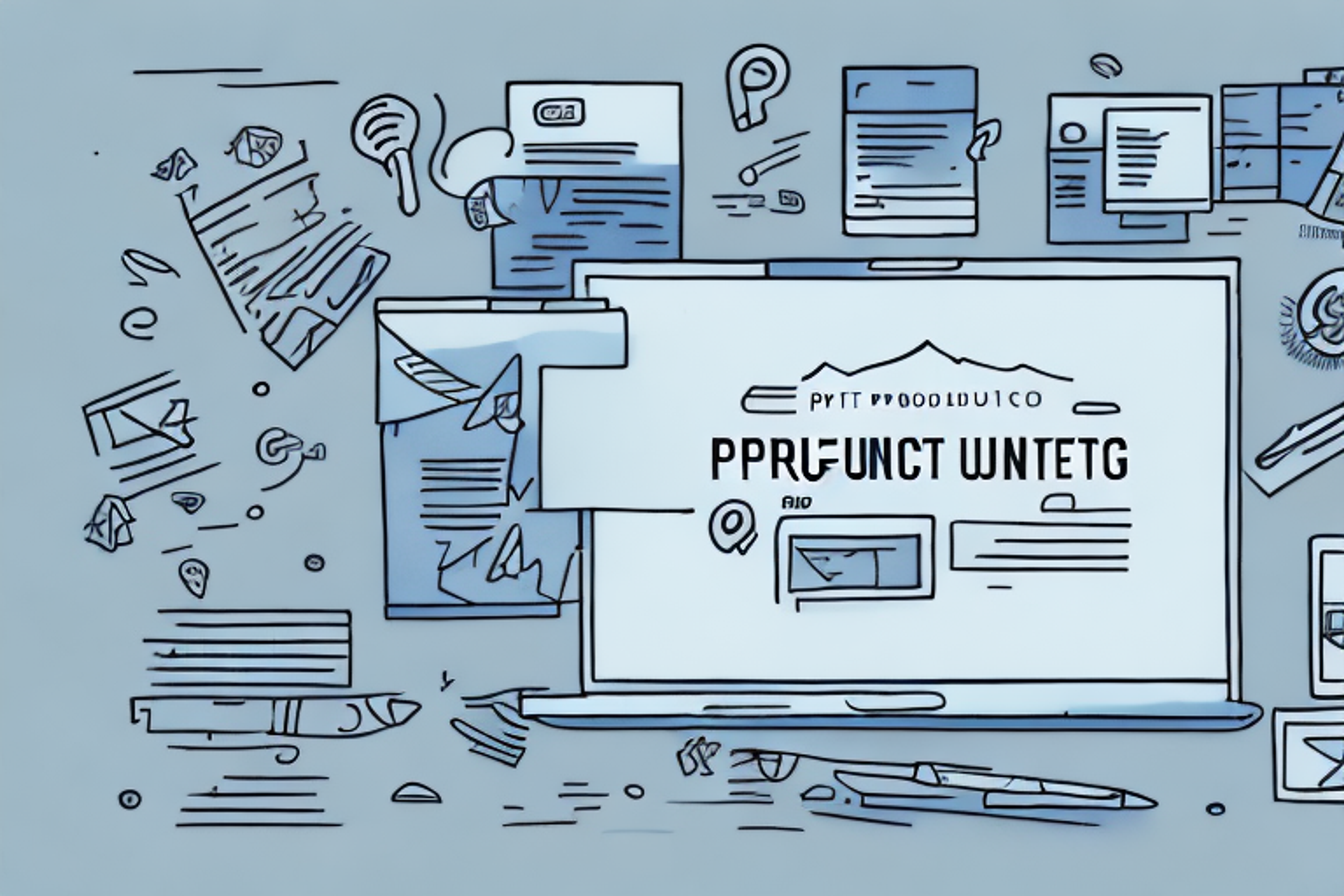Courses and Schools for Product Managers: A Comprehensive Guide
Looking to become a successful product manager? Our comprehensive guide covers the top courses and schools to help you gain the skills and knowledge you need to excel in this exciting field.
Posted May 15, 2023

Table of Contents
Product management is one of the most critical roles in a company, responsible for ensuring that a product is successful in the market. A product manager must have a variety of skills, ranging from market research to project management to leadership. If you're looking to start a career in product management or improve your skills as a product manager, taking courses and attending schools can be an excellent way to achieve your goals. In this comprehensive guide, we will explore everything you need to know about courses and schools for product managers, including why they are essential, what skills you need to succeed, and how to choose the right program for you.
Why Product Management is a Critical Role
Product management is a crucial role that plays a significant part in a company's success. Product managers are responsible for creating and executing the product strategy by working collaboratively with various departments such as marketing, engineering, and design. Effective product management helps drive business growth by ensuring that products meet user needs and create value for the organization. In today's rapidly changing marketplace, businesses need to innovate constantly, making product management an increasingly crucial role.
One of the key responsibilities of a product manager is to conduct market research and analyze customer feedback to identify new opportunities for product development. By understanding the needs and preferences of their target audience, product managers can create products that are tailored to meet those needs, which can lead to increased customer satisfaction and loyalty.
Another important aspect of product management is managing the product lifecycle. This involves overseeing the development, launch, and ongoing maintenance of a product. Product managers need to ensure that the product is delivered on time, within budget, and meets the quality standards set by the company. They also need to monitor the product's performance and make adjustments as necessary to ensure that it continues to meet the needs of its users.
Understanding the Skills Required for Product Management
Successful product managers need a variety of skills to excel in their role. Some of the essential skills include strong communication, project management, critical thinking, leadership, and the ability to analyze data. Product managers must also have a deep understanding of their target audience, market trends, competitor's products, and technology. Additionally, product managers must be able to balance creative and analytical thinking, as they are responsible for developing new products and creating strategies for the existing products.
Another important skill for product managers is the ability to collaborate effectively with cross-functional teams. Product managers work closely with designers, engineers, marketers, and sales teams to ensure that the product is developed and launched successfully. They must be able to communicate effectively with each team member and ensure that everyone is working towards the same goal.
Furthermore, product managers must be able to adapt to changing market conditions and customer needs. They must be able to pivot quickly and make decisions based on data and feedback. This requires a certain level of agility and flexibility, as well as the ability to think creatively and outside the box.
Benefits of Taking Courses and Attending Schools for Product Managers
Attending a product management course or school can enhance your skills and help you become a better product manager. By taking courses or attending schools, you can learn practical skills that can be immediately applied to your job. You'll also have the opportunity to learn from experienced product managers and network with peers in the industry. Additionally, many courses and schools offer certifications, which can add credibility to your resume and help advance your career.
How to Choose the Right Course or School for Product Management
When selecting a course or school for product management, there are several factors to consider. The first step is to assess your current skill set and identify areas where you need improvement. Next, consider the type of program you want to attend, whether that be an in-person or online course or a traditional degree program. You should also consider the reputation of the school or program and read reviews from former students. Additionally, think about the cost and time commitment required for the program.
Top Schools Offering Courses in Product Management
Several top schools offer courses or programs in product management. Some of the most well-known include Stanford University, Massachusetts Institute of Technology (MIT), University of California, Berkeley, and the University of Michigan. These schools offer a range of courses from short-term certificate programs to full-time degree programs. Additionally, many business schools such as Harvard Business School offer courses in product management.
Online Learning Platforms to Consider for Product Management Courses
If you're looking for flexibility, online learning platforms can be an excellent option. Platforms such as Coursera, Udemy, and LinkedIn Learning offer a range of courses in product management at a fraction of the cost of traditional programs. These courses are often self-paced, allowing you to learn at your own pace and balance your work and personal life. Additionally, online courses usually offer practical materials and activities that can be immediately applied to your job.
Features to Look for in a Product Management Course or School
When selecting a product management course or school, several features are essential to consider. Firstly, the program should cover all the essential skills required for Product Management. The program should have experienced faculty and should be backed by industry experts. Additionally, the program should be practical, with real-world examples, tools, and techniques that can be applied to your job. Lastly, the program should provide networking opportunities to connect with other product managers and alumni.
Tips for Succeeding in a Product Management Course or School
If you're planning to take a product management course or attend school, there are several tips to help you succeed. Firstly, set clear goals for what you want to achieve and map out a plan of action. Additionally, make sure you're familiar with the course materials before attending class and take notes to help you remember essential concepts. Utilize the resources available to you, such as faculty members and fellow students, and collaborate on projects to practice teamwork. Lastly, apply what you've learned on the job and continue learning by attending workshops and conferences.
The Role of Certifications in Advancing Your Career as a Product Manager
Certifications can be beneficial in advancing your career as a product manager. Certifications demonstrate to your employer and clients that you have the necessary skills to perform high-quality work. Some popular certifications in product management include Certified Product Manager (CPM) and Product Management Certification (PMC). Additionally, many schools offer specialized certifications, such as the Executive Programs in Product Management from the Stanford Graduate School of Business.
Real-World Case Studies and Examples from Successful Product Managers
Real-world case studies and examples from successful product managers can be a valuable learning tool. By studying real-world examples, you can see how product managers solved complex problems, overcame obstacles, and developed successful products. Some well-known examples include the launch of Apple's iPod by Tony Fadell and the development of Amazon's Alexa by Rohit Prasad. Additionally, many courses and schools include case studies and examples from successful product managers as a part of their curriculum.
Best Practices for Building and Leading High-Performing Teams as a Product Manager
As a product manager, building and leading high-performing teams is a critical component of success. Some best practices for building and leading teams include creating a strong company culture, providing clear goals and expectations, setting up your team for success by providing necessary support, and acknowledging your team's successes and contributions. Additionally, it's essential to identify each team member's strengths and weaknesses and assign tasks that match their skill set. Lastly, make sure to create a feedback loop to ensure everyone's needs are being met and continuously improve your team's performance.
Developing an Effective Product Strategy: Techniques and Tools to Master
Effective product strategy is key to the success of any product. There are several techniques and tools you can use to develop an effective product strategy. Firstly, perform market research to identify user needs, trends, and competitor's products. Next, define your product's value proposition and align it with the company's vision and goals. Additionally, create a roadmap and prioritize features to ensure you're addressing the most critical needs first. Lastly, establish key performance indicators (KPIs) and measure your product's success regularly.
Navigating Common Challenges Faced by Product Managers and How to Overcome Them
Product managers face several challenges, ranging from conflicting priorities to tight deadlines. To navigate these challenges, it's important to prioritize tasks, communicate effectively, and manage expectations. Additionally, learn to delegate tasks and empower your team to take ownership of their work. Lastly, be adaptable and willing to change strategies, as products and market conditions evolve.
Future Trends in Product Management and Preparing Yourself for Them
As technology continues to evolve, product management is also changing. Some future trends in product management include the rise of artificial intelligence (AI), the increasing importance of user experience (UX), and the demand for sustainability. To prepare for these trends, it's essential to stay up-to-date with the latest trends and seek out additional training when necessary. Additionally, build a network of peers and attend industry events to stay informed and connected.
In conclusion, taking courses and attending schools can be an excellent way for product managers to improve their skills and enhance their careers. With the right program, product managers can gain practical skills, network with peers, and earn certifications that add credibility to their resume. By considering the factors mentioned above and following the tips provided, you can select a program that meets your needs and help you achieve your career goals.



















